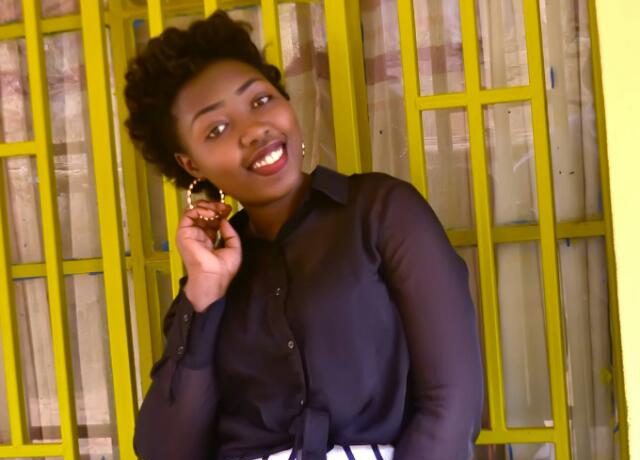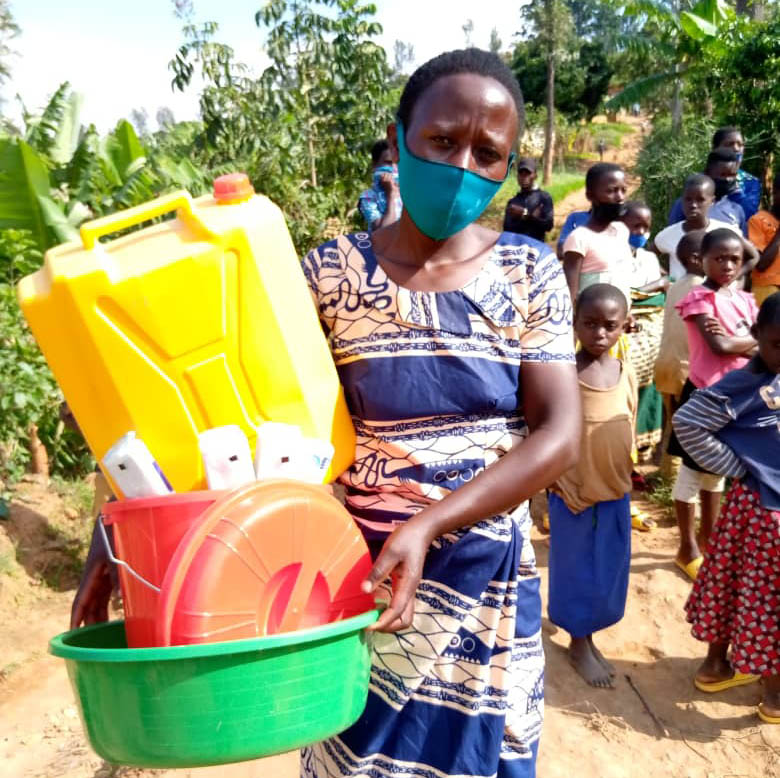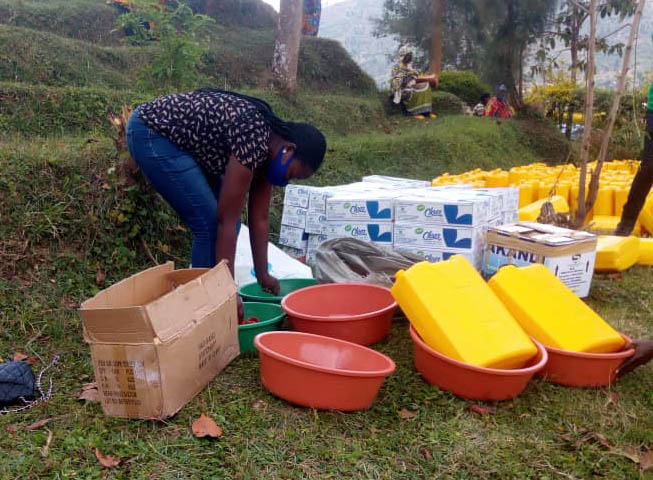Story
Rachel

Supporting young women, single mothers and pregnant women in the wake COVID-19
Social innovators are resilient and creative in the face of challenge and change. Those qualities can certainly be used to describe Rachel Uwizerwa, a #DOTYouth from Rwanda who became a first-time community leader in the midst of the global pandemic.
Her initiative is called the Ngoboka Project, which translates to “support me” in Kinyarwanda. Rachel created the project when Rwanda’s country-wide COVID-19 lockdown started in mid-March. Its aim is to help single mothers and pregnant women, two groups who are disproportionately affected by the hardships of COVID-19 and the lockdown.
“In Rwandan culture, women are the ones who are feeding their family. They are responsible for buying food, cooking, and doing other activities. All women experience different challenges, but single mothers are especially vulnerable because they live alone and do not have husbands,” Rachel explains.
Rachel was in her home city of Huye in Rwanda’s Southern Province when the lockdown began. At the time, she found single mothers and pregnant women who were constrained to their homes with little help, resources, or food.
Identifying an urgent need, Rachel created two WhatsApp groups, one to coordinate volunteers and another to collect mobile money donations from community members. Rachel and a team of other young volunteers used those contributions to buy soap, masks, and other food supplies. They then worked with local leaders and the Red Cross to distribute emergency rice, maize, and beans to 50 women and their families.
“The women were really happy and they appreciated my initiative,” Rachel says. “They did not think there were people who knew they were suffering, and they were relieved that we recognized them.”

A woman from the community receiving food and other materials from the Ngoboka Project
Rachel also created various educational materials to help limit the spread of COVID-19. One example was a minute-long facemask promotion video featuring a dozen youth from her community. The message of the video was translated into French and Kinyarwanda, two of Rwanda’s official languages, and became a popular shareable on social media.
#DOTYouth Street Team: Fostering future social innovation
News of Rachel’s efforts spread online. Learning about the Ngoboka Project, a friend suggested Rachel apply for the #DOTYouth Street Team initiative. Becoming a Street Team member in April, Rachel says she appreciated working with other youth leaders during the gender equality training, as well as talking with a coach to define her project’s goals. She was also introduced to local Red Cross officials by Sharon and Cecile, two DOT staff members.
Created specifically to meet the emergency needs of single mothers and pregnant women during the lockdown, Rachel does not plan to continue the Ngoboka Project in the future. The initiative and her #DOTYouth Street Team experience have, however, gotten Rachel interested in social innovation as a way to address the needs of youth in her community.
“I am inspired to continue more if possible. I thought to do another project for students because they are the ones with less to do in our community, and there is drug abuse and other activities affecting them,” Rachel says. “I might also do a project to teach skills about peacebuilding, critical thinking, and leadership because I got the chance to be trained on those activities.”
With a keen sense of community need and a desire to lead change, the Ngoboka Project may have been Rachel’s first initiative, but it will likely not be her last.

Rachel Organizing supplies for the Ngoboka Project
Are you our next Community Leader, Digital Champion, or Social Innovator? Learn more about how to join #DOTYouth
Join #DOTYouthShare this Story
More STORIES
Read more inspiring stories like Rachel.